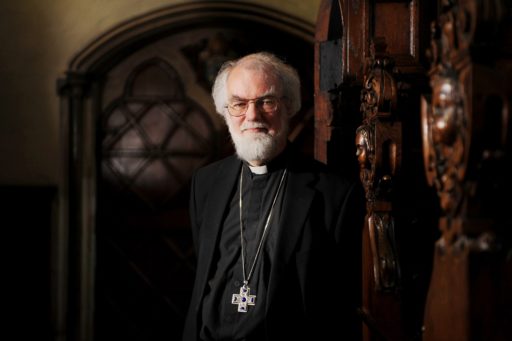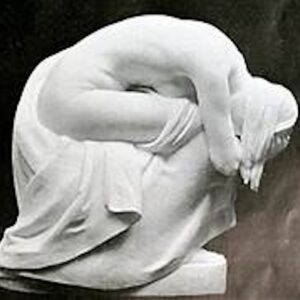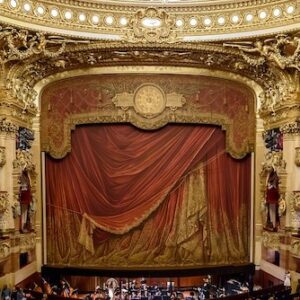If there ever was a sentence you had to chew on, this is it. (It’s on p. 170 of Rowan Williams’s The Edge of Words: God and the Habits of Language, an expansion of his 2014 Gifford Lectures.) The sentence goes:
If our language is systematically indeterminate, incomplete, embodied, developed through paradox, metaphor and formal structure, and interwoven through a silence that opens up further possibilities of speech, it is a reality which consistently reveals a ‘hinterland’ as if it is always following on, or always responding, living in the wake of or in the shadow of intelligible relations whose full scale is still obscure to us.
It took me two readings or chewings of the entire book to get a taste of what Williams is saying just here, in this one place—and indeed what he is saying everywhere else in the book, since The Edge of Words is, we could say, the same sentence re-written over and over again. As if what he wants to say about language requires constant rephrasing. For starters take another look above at the way words build on words: “indeterminate, incomplete, embodied, developed…,” “paradox, metaphor and formal structure…,” or “following on…responding…,” or “in the wake of or in the shadow of….” None of these words is repetitive. Each touches on a different, fuller aspect of the process that Williams not only describes but embodies in his prose. And this sequencing of words actually spells out the argument of the entire book: from language as embodiment to language as gateway to mystery.
Williams is aware of the burden a sentence like this places on the reader. So the next sentence reassuringly continues:
To put it a little more sharply: these aspects of language seem to show that we live in an environment where intelligent communication is ubiquitous—where there is ‘sense’ before we make sense.
Hmm… “reassuring,” did I say? Williams’s “a little more” implies that the point of it all, even after a sharpening, still isn’t as sharp as it needs to be. So Williams, in the following sentence, continues, deprecatingly:
Nothing will establish beyond debate that this is not illusory, of course…
Reassured at last? That depends on how you handle double negatives. Maybe frustrated comes closer? Challenged? Or intrigued? Even energized by the way Williams’s use of language about language, from the beginning of the book to the end, constantly rewrites itself? But if, as I hope, feeling energized is your response, you must still be asking: Why? Why must this be so?
But if you’re an impatient reader, as I sometimes am, aggressively insisting on a writer’s “getting to the point,” you will just have to slow down—and gradually, not grudgingly, accept that the “point” is the rewriting, is the recasting, is the reformulating, since the “point” is not simply elusive, but unspeakable, something other than what language has the capacity to name, to contain, to control, even in the form of a negative like “unspeakable” or an oblique qualifier like “other.”
Yet if you are or can become a patient reader, The Edge of Words is then not like a dancer en pie spinning on a single ever-elusive “point,” but whirling like a dancer along a discursive path towards the destination announced in the title: towards the “edge of words.”
Williams has been busy drawing the dancer’s trajectory from the Introduction on. And there it is again, above, on p. 170. The key passage is one we’ve already looked at:
… our language is systematically indeterminate, incomplete, embodied, developed through paradox, metaphor and formal structure, and interwoven through a silence that opens up further possibilities of speech…
You’ve probably noticed that I’ve removed the “if” from the beginning of this dependent clause. By doing so I‘ve stripped life from the statement and left the skeleton. I’ll clumsily try to put some of it back in: language is not simply descriptive (a naming and cataloging of objects outside of us), but also and mainly representational—that is, our unique way of communicating with the world around us, dialoguing with it, exploring relationships with it. An exploring that can never stop any more than time can stop, an exploring motivated in part by the need of self-preservation in an ever-changing world.
In this respect, Williams argues, language is not a kind of “ghost in the machine,” a product of an ethereal “implant” that mysteriously houses itself inside our skulls. It is a function of the kind of physical brain we possess. Language is fully material, fully embodied. It is not fundamentally different from the other means all other beings in the world use to communicate with each other and with us.
Where language differs from other means of communication (of making intelligible) is in its awareness of its capacity of representation. What follows from that awareness—and tracing the direction of that awareness is what Williams gives us in the sentence I quoted at the beginning—is a sense of language’s own incompleteness, of its “…living in the wake of or in the shadow of intelligible relations whose full scale is still obscure to us.” There’s no stopping language in its need to arrive at its goal, at a point beyond what it can say, contorting itself in metaphor and paradox up to and beyond the “edge of words,” into silence—itself a form of communication, of making intelligible.
But at that point, if “point” it is, what is language trying to say, and to whom— with whom?
Here (I was going to say “at this point”) we have to remember that Williams is delivering the Gifford Lectures. Those lectures require that the speaker talk of God, not as “revealed” through Scripture, but as known through “natural philosophy,” that is, through the sciences of our time. By accepting this limit, Williams can’t talk as he usually does, as a greatly gifted theologian and pastor. (Williams is the former Archbishop of Canterbury.) But he can employ his vast learning and creativity (he is also a fine poet and playwright) to dance a perpetually looping movement from what is known of the physical basis of speech through the origins and basis of speech’s own self-questioning to the silence that makes questions about a goal in a Higher Intelligibility possible. Not necessary, not “proven”—because proof by definition would have to be articulated and final. But the goal in the sacred can be suggested, shown, by what Williams in the book’s final sentence calls these “preparatory exercises in theology.”
Yet if you’re not willing (or ready yet) to accept his book as a series of such exercises, Williams leaves you options, thus inviting you later on in that last sentence to spin or loop further in order to
… grasp how conviction about the sacred in a way as distantly analogous to our own intelligent action…belongs with the most significant thing we can say about our very human identity.
It’s hard to resist an invitation like that.
After getting his PhD in English literature, George Dardess taught close reading to his own students until his retirement. Since then he has been ordained a Deacon in the Roman Catholic Church and written several books on Muslim-Christian relations. He has also created the graphic novel Foreign Exchange.





